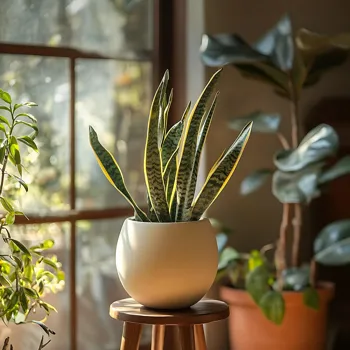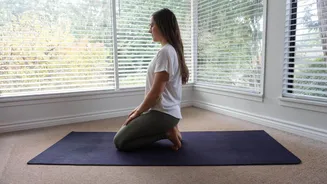Discover 7 practical ways to infuse mindfulness into your daily life, enhancing well-being and peace. Explore more below!
In today's fast-paced world, mind full ness often gets overshadowed by mindlessness.
We're constantly bombarded with deadlines, notifications, and a never-ending to-do list. This can leave us feeling stressed, anxious, and disconnected from the present moment.

But what if there was a way to find calm amidst the chaos? The good news is, you can! Incorporating mindfulness into your daily routine can help you cultivate a sense of peace, improve your focus, and enhance your overall well-being.
It's not about escaping reality; it's about engaging with it fully, with awareness and acceptance. Let's explore seven simple ways to weave mindfulness into your everyday life, making each day a little more grounded and fulfilling.
The aim is to simply be present and aware in everything that we do
So, start simply and gradually!
Mindful Morning Rituals: Setting the Tone for the Day
Forget hitting the snooze button for the tenth time. Instead, start your day with intention. Before even reaching for your phone, take a few deep breaths. Feel the air entering your lungs and slowly exhale, releasing any tension. Spend just five minutes in quiet contemplation.

This could involve simply observing your thoughts without judgment, noticing the sensations in your body, or focusing on the sounds around you. Another option is gentle stretching. As you move, pay attention to the way your body feels.
Notice any areas of tightness or discomfort and breathe into those areas. Alternatively, try mindful tea preparation. Focus on the steps involved – the sound of the water, the aroma of the tea leaves, the warmth of the cup in your hands.
These small acts of mindfulness can set a positive tone for the entire day, helping you approach challenges with greater calm and clarity.
Mindful Eating: Savoring Each Bite
How often do we eat our meals in front of the television, scrolling through social media, or rushing to the next task? Mindful eating encourages us to slow down and truly savor each bite. Start by taking a moment to appreciate the food in front of you. Notice its colors, textures, and aromas.

As you eat, pay attention to the flavors and sensations in your mouth. Chew slowly and deliberately, and put your fork down between bites. Avoid distractions like phones and computers. Engage all your senses in the experience of eating.
Notice the way the food feels in your mouth, the sounds you make as you chew, and the expression on your face as you enjoy each bite.
By eating mindfully, you'll not only enjoy your food more, but you'll also become more aware of your body's hunger and fullness cues, which can support healthier eating habits.
Mindful Commuting: Transforming Travel Time
Whether you're driving, taking the bus, or riding the train, your commute can be an opportunity for mindfulness. Instead of getting caught up in road rage or zoning out with your headphones, try tuning into your surroundings.
Notice the colors of the buildings, the movement of the trees, the faces of the People walking by. Pay attention to the sensations in your body. Feel the seat beneath you, the steering wheel in your hands, or the ground beneath your feet. If you're driving, practice mindful driving.
Focus on the task at hand, avoiding distractions like texting or talking on the phone. Be aware of your speed and maintain a safe distance from other vehicles. You can also use your commute to practice gratitude.
Think about the things you're grateful for in your life, from your family and friends to your health and opportunities.
Mindful Work Breaks: Recharging Throughout the Day
Instead of reaching for social media, use your breaks as opportunities to recharge and reconnect with yourself. Set a timer for five minutes and find a quiet place to sit. Close your eyes and focus on your breath. Notice the rise and fall of your chest or belly with each inhale and exhale.

If your mind wanders, gently guide your attention back to your breath. You can also try a short walking meditation. Step away from your desk and walk slowly around the office or outside. Pay attention to the sensations in your feet as they make contact with the ground.
Notice the sounds and smells around you. Another option is to simply stretch and move your body. Release any tension that has built up during the day. These short breaks can help you feel refreshed, focused, and more present throughout the afternoon.
Mindful Chores: Finding Peace in the Mundane
Chores often feel like a burden, but they can also be opportunities to practice mindfulness. As you wash the dishes, pay attention to the feel of the water on your hands, the sound of the dishes clinking together, and the scent of the soap.

As you fold laundry, notice the textures of the fabrics, the colors of the clothes, and the way they smell. As you sweep the floor, focus on the movement of your body and the feeling of the broom in your hands.
The key is to fully engage in the activity, rather than letting your mind wander to other things. When you approach chores with mindfulness, you can transform them from dreaded tasks into opportunities for peace and presence. You can also feel grateful for these necessities in your life.
Mindful Evenings: Winding Down for Restful Sleep
To prepare for a restful nights sleep, it’s necessary to create a calming evening routine. Turn off electronic devices at least an hour before bed. The blue light emitted from screens can interfere with your sleep. Take a warm bath or shower.

The warmth can help relax your muscles and calm your mind. Read a book. Choose something light and enjoyable, rather than stimulating or stressful. Practice a relaxing activity like gentle yoga or meditation. This can help you quiet your mind and prepare for sleep.
Create a peaceful sleep environment. Make sure your bedroom is dark, quiet, and cool. All these activities will facilitate a peaceful state.
Mindful Bedtime Routine: Reflecting on Gratitude
We can all use ways to reflect on our day and look at what we can improve upon. Before drifting to sleep, take a few moments to reflect on the day. What are you grateful for? What did you learn? What could you have done differently? You can mentally go over these things or write it out in a journal.

The act of writing it out can be very powerful. Focusing on things that you are grateful for can also make you feel more positive about your life. Be gentle with yourself and avoid dwelling on mistakes or regrets. Acknowledge your progress and celebrate your strengths.
By ending the day with gratitude and reflection, you can cultivate a sense of peace and contentment. This will improve your sleep and also your outlook for the next day.
AI Generated Content. Glance/InMobi shall have no liability for the content













